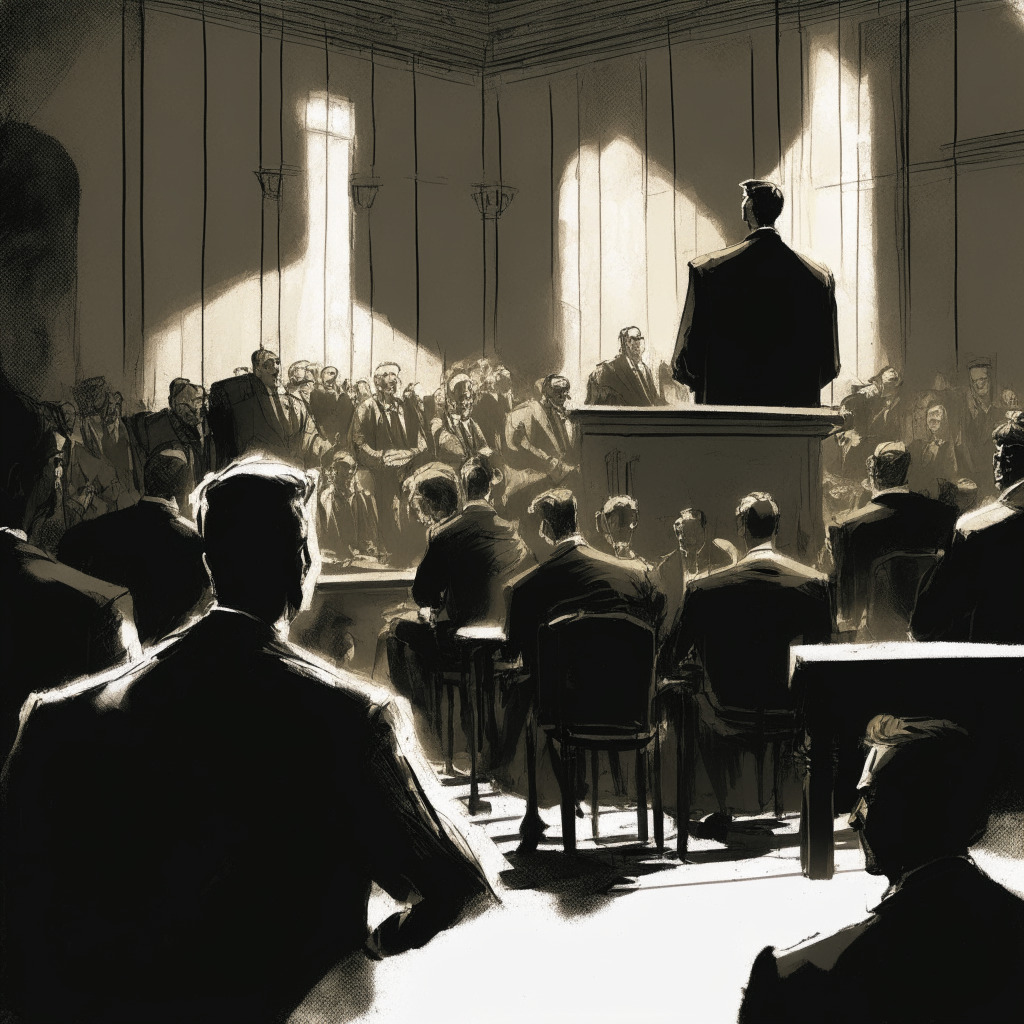Immersed in unfolding courtroom drama, as the former CEO of FTX, Sam Bankman-Fried stands trial, all eyes in both Wall Street and the crypto industry are fixated on the Manhattan federal court. Facing accusations of orchestrating one of the largest financial crimes in the history of the U.S., this case sets the precedent for how U.S. Courts will confront financial wrongdoing in the realm of cryptocurrency.
Prior to the FTX bankruptcy, Bankman-Fried was likened to the “Warren Buffet of crypto.” The prosecution has primarily accused Bankman-Fried of fraudulent misrepresentation of the relationship between his two companies, FTX and Alameda Research. Suspicions arose that contrary to public representations of corporate independence, Alameda beheld an unrestricted line of credit on the FTX platform. Such freedom gave rise to risky and illiquid investments that, when unsuccessful, reportedly led to the use of additional customer funds to recoup the losses. A gradient of charges has now come to tarnish Bankman-Fried’s reputation, from conspiracy to commit money laundering to outright fraud.
Even as the case hedges on the misalignment of business operations between his two firms, the stakes intensify as the government draws upon evidence from key witnesses who held high-profile roles in Bankman-Fried’s operations. The collective testimony of ex-chief technology officer Gary Wang, former FTX engineering director Nishad Singh, and the past Alameda Research CEO Caroline Ellison is expected to unravel several alleged fraudulent transactions and activities, laying bare the machinations behind the FTX business operations.
Bankman-Fried’s defense strategy rests on intriguing tactics. A disregard for conventional legal advise to remain quiet, has seen him give voice to his case, including conveying his narrative that any errors made were not intentional but a part of the learning curve. Yet, provocative actions, including the sharing of sensitive personal writings of Ellison with a New York Times reporter have resulted in the revocation of his bail in August, serving as potential self-sabotaging moves.
However, Bankman-Fried’s claims of ignorance with regards to the platform’s coding or Alameda Research operations, highlight an interesting aspect of the evolving crypto litigation landscape. As the hearings gain momentum and the first of many narratives come to light, skepticism must be maintained, but the broader message cannot be ignored. The verdict of this unprecedented case will potentially serve as a new regulatory bollard for the Crypto sector. It will test the norms and resilience of the currently nebulous crypto industry laws, thereby setting the tone for future dealings with legal transgressions in this rapidly evolving sector.
Source: Cryptonews




